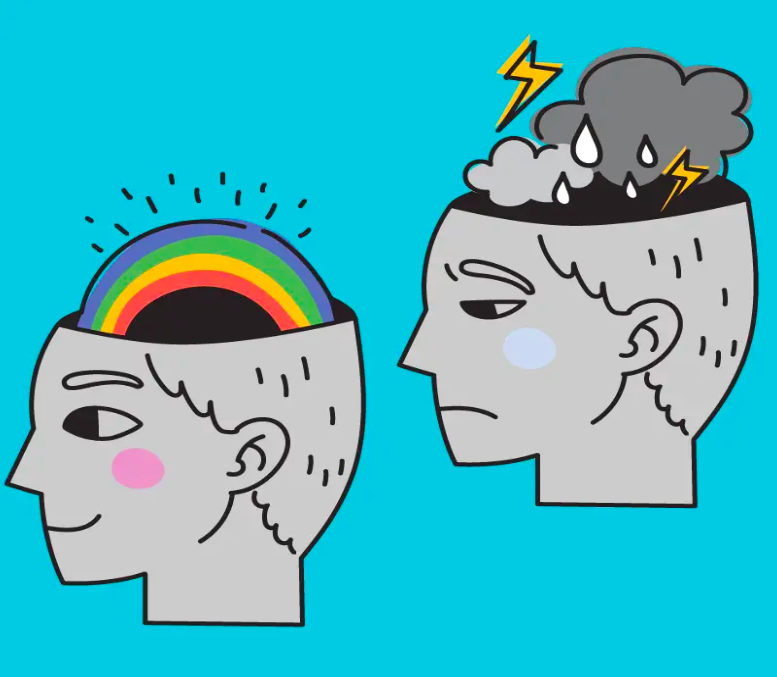In an increasingly digital world, social media platforms have become an integral part of people’s lives. However, the relationship between social media use and mental health has raised concerns over the years.
Maria Teresa Mejía, affectionately known as Maria T. in HS, has 17 years of experience in the school working as a counselor. She has heard many stories and known hundreds of teenagers sharing their experiences. 11th-grade student, Isabel Cardenas, who has battled with social media since a young age, shares her insights on the impact of social media on individuals’ mental well-being.
Mejía believes this problem started to grow out of society’s hands. Since she has seen the process of social media development since the beginning, she had a clear answer: the 21st century when the internet got so easy to obtain.
“When the Internet became something that almost everyone in the world could access. You know, because when I was growing up, we didn’t have Wi-Fi, for example, or the internet was not in every house, and you could not use it all the time. Now the access to the internet is everywhere, so you’re consuming 24/7,” Mejía said.
As the internet has improved people have become more dependent on our social media, and mental health progressively gets worse. Mejía also explains some of the principal effects of social media on teenagers, but overall in everyone, which are low self-esteem and consequences of comparison.
“Worldwide media has shown that social media screws up the beauty standards people have all those filters or when they are doing cool stuff. So the problem is you’re comparing yourself to other people’s life and they’re only showing parts of their life and it’s not the reality. They are posting bodies that are not natural. Social media does not just affect mental health but our well-being overall. An example of this is the blue screen affects your vision, also your melatonin, and your sleeping patterns,” Mejía said.
The counselor shares the effects that social media has caused on society, but also some solutions. She encourages people to question themselves, and how people can turn something negative into positive. To question what people see on social media, the apps they use, and what makes them comfortable.
“What content are you willing to consume? What accounts do you follow? Because you want to, nobody forces you to do anything. So it’s more of a self-control thing. Social media also gives you tons of free meditation tools that can help you connect with yourself. Are we only consuming Instagram and TikTok? Or are we looking for interesting podcasts on Spotify, or meditation apps,” Mejía said.
Cardenas shares her point of view from someone who has grown up with social media all her life, and who as a teenager, can be more vulnerable to mental health issues caused by social media. She noticed patterns of fakeness in social media as well as Maria Teresa. It is popular to edit yourself to fit into beauty standards. The use of these filters is not commonly addressed.
“We have a toxic relationship with social media, having high expectations that are impossible to accomplish. This problem will continue to affect people, but at the same time, I hope that in the future, the next generations are going to be more educated on social media, have adequate etiquette, and care about people’s mental health,” Cardenas said.
Cardenas not only focuses on insecurities and body dysmorphia which are some of the most common effects caused by social media but she also talks about multiple types of problems caused by the internet and tells us a recent story where cyberbullying, catfishing, and fake news were involved.
“At the beginning of the school year, there was an anonymous account where gossip about people in school was being posted. Since there were tons of mean comments, everyone was being affected and talking about it. But To control cyberbullying people have to self-reflect and decide what values they stand for, and how would you feel in other people’s shoes,” Cardenas said.
Cardenas commented that her biggest fear in social media is FOMO: “Fear of missing out,” but she has learned to manage it and self-reflect on this, she leaves people a message: to have better mental health, and not let social media affect you that easily.
“Sometimes you look through social media and you see people at parties or going out, and you would like to be there. And I think that what you have to do is just focus on getting good friends that are always there for you, not friends that are just there to party,” Cardenas said.



